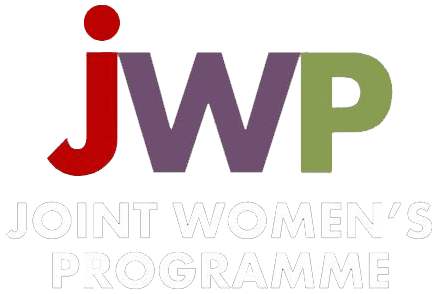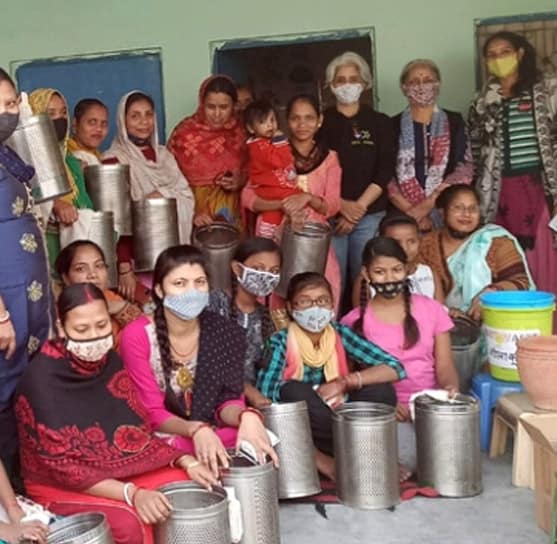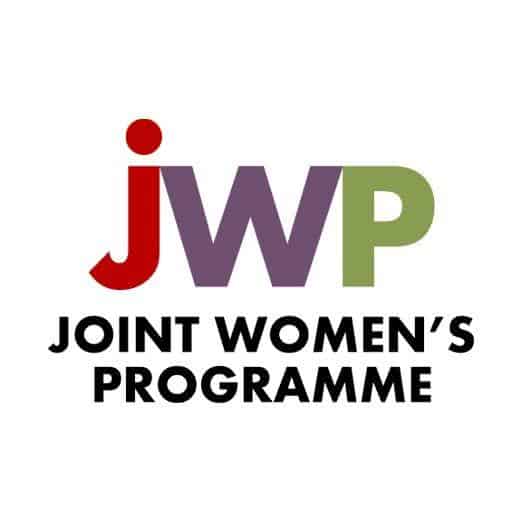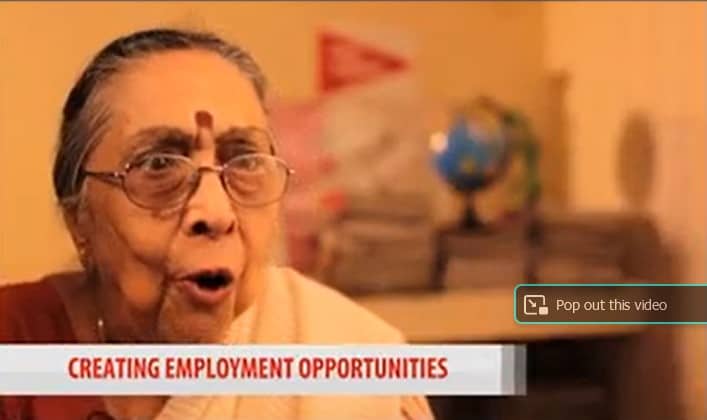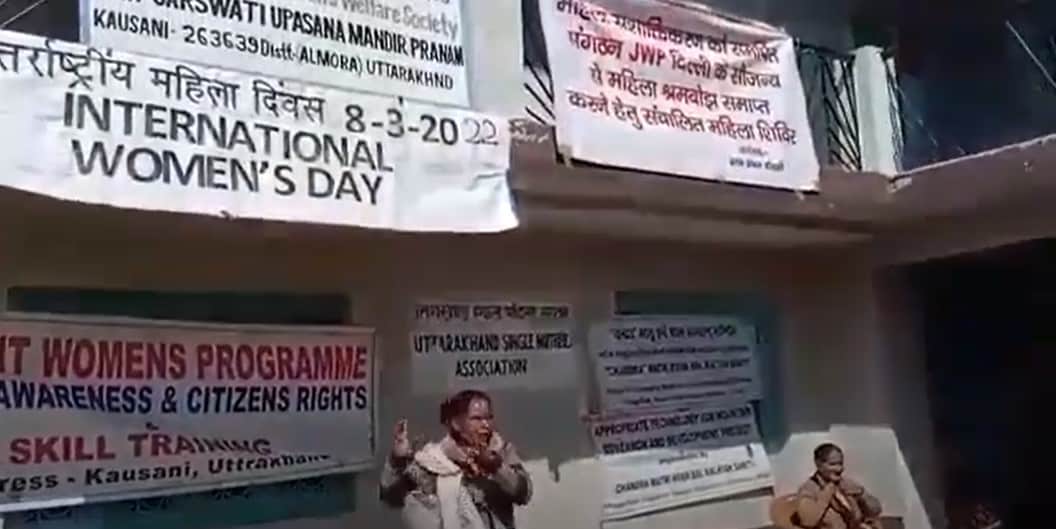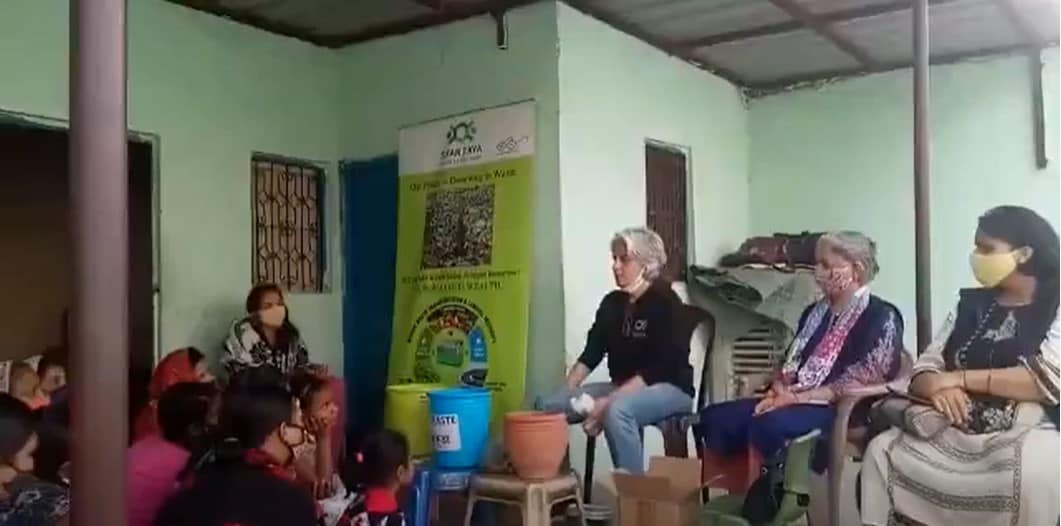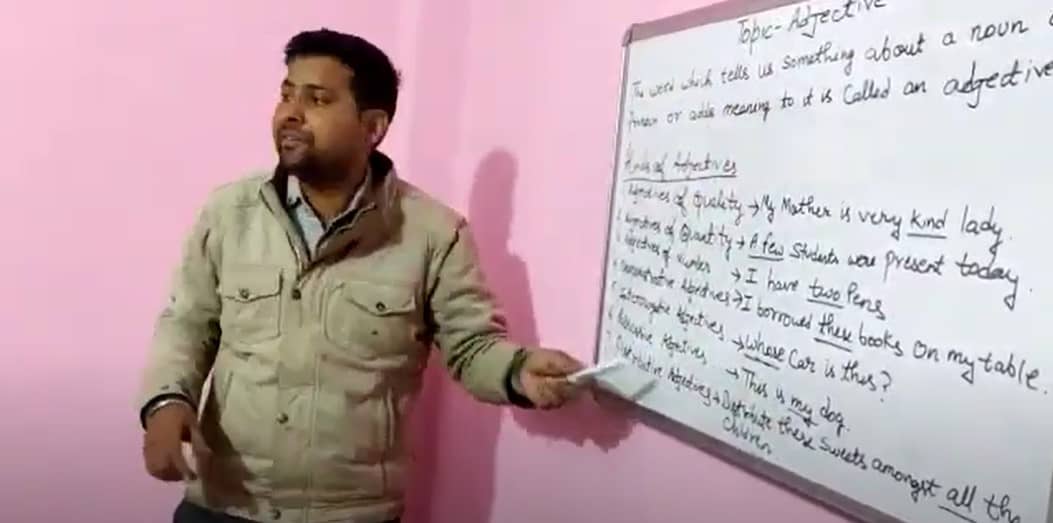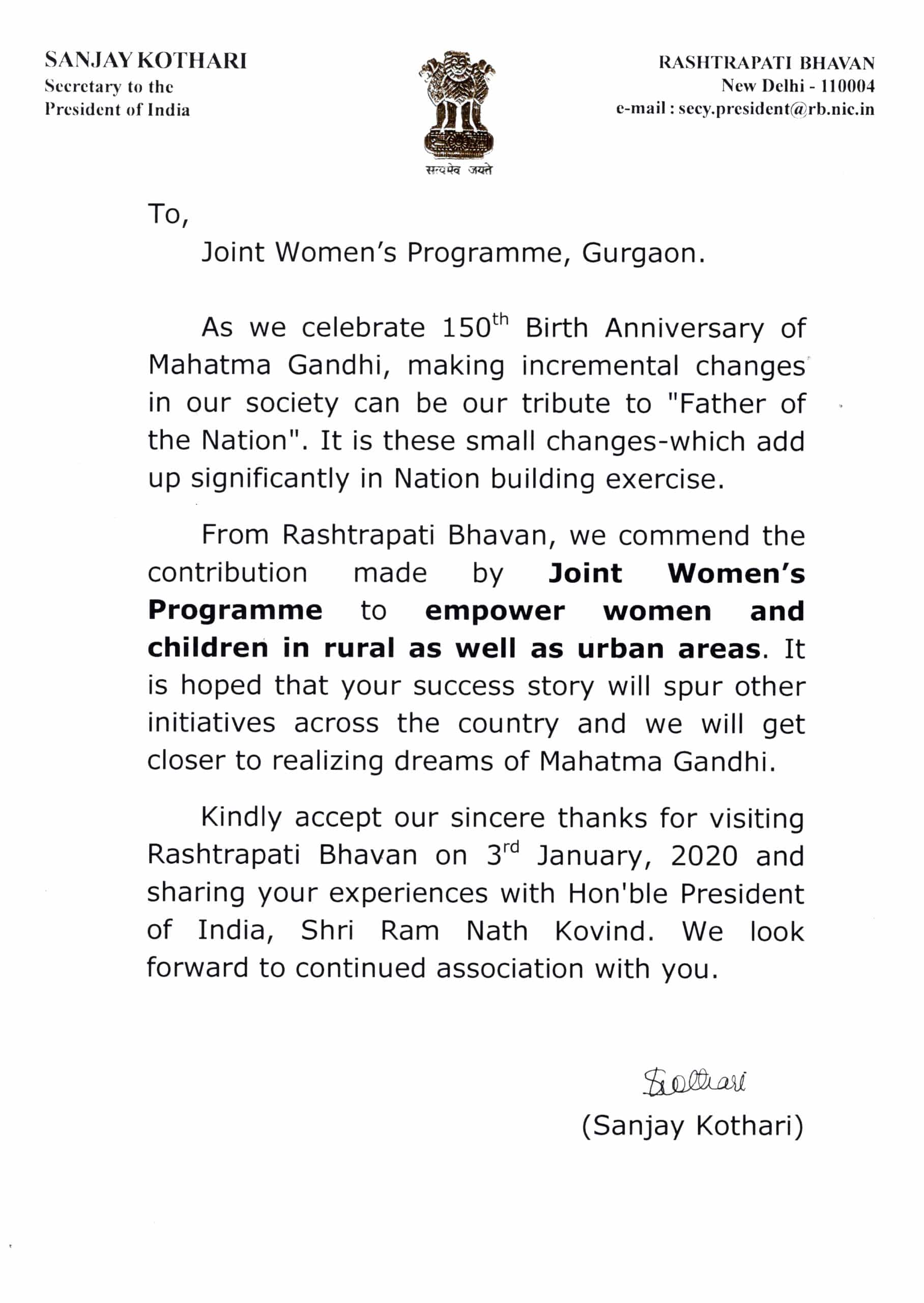
Dr. Jyotsna Chatterji
Founder & Director
Joint Women’s Programme
JOINT WOMEN'S PROGRAMME
Being one of the earliest advocates for the empowerment of women and children in India, JWP began its journey in 1977, with an objective to:
- create a society of equal partnership between women and men
- ensure access to education and protection for children
- emphasize on grassroot women organization and community building in rural as well as urban areas.
JWP implements programmes across several Indian states. It fosters issue-based campaigning and networking among women’s groups and others at the local, regional, and national levels.
As a non-profit organisation, it has reached out to the government, law enforcement agencies, civil society organisations, grassroots organisations, and concerned people, among others, to advance the cause of women and children’s concerns.
JWP MERA SAHARA CENTRES
Project Mera Sahara started in 2007 with minimal resources in Nithari, Noida following the frightening incident that took place in December 2006 and envisaged starting a protection and learning centre.
Today, Mera Sahara Centres provide non-formal schooling (upto class 5) and crèche facilities for infants, adult literacy (training in legal literacy) programmes for young adults and women as well as skill development programmes for economic empowerment of women and young girls.
-
Nithari, Noida, Uttar Pradesh
• Non-formal schooling up to class 5
• Tailoring unit
• Adult Education
• Skill Training Programme, community building and environment awareness. -
Okhla, New Delhi
• Non-formal schooling up to class 5
• Legal awareness programme
• Adult literacy programmes for women
• Skill training in Tailoring. -
Faridabad, Haryana
• Adult education
• Legal literacy classes
• Skill training programme in tailoring and cooking -
Kausani, Uttarakhand
• Non-formal schooling up to class 5
• Skill training programme -Durry and shawl making. Making of small women friendly agricultural tools
• Environment protection and waste management programmes.
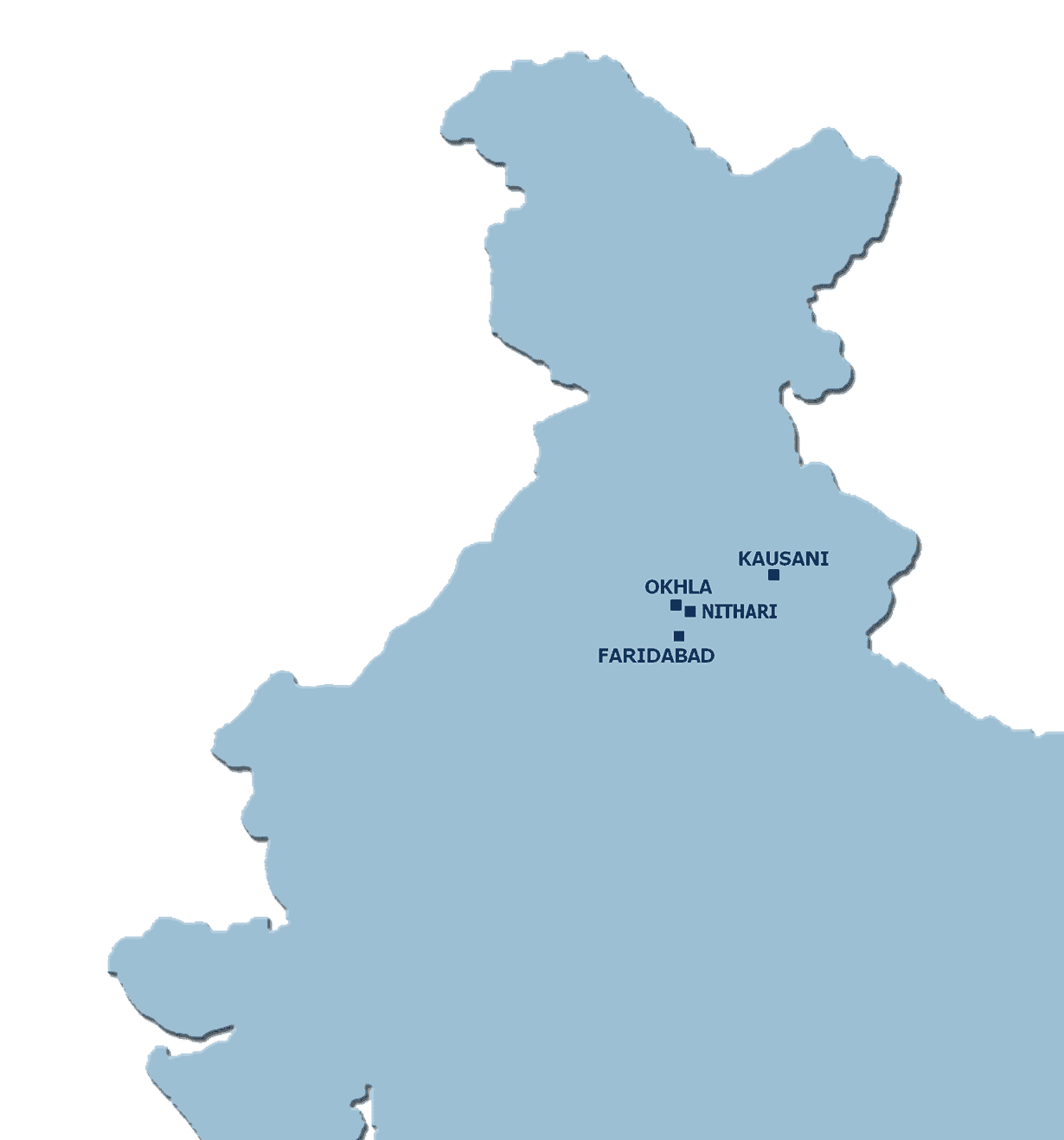
How Mera Sahara got its Name
Back in 2009, JWP Director Dr. Jyotsna Chatterji asked the children what they felt about the Centre and what they would like to name it. A twelve-year-old boy responded, “Mera Sahara” because “yahan hum khushi se sekhenge aur ek doosre ka sahara banenge” (Here we will learn happily and become a support to each other).
EDUCATION
JWP believes that every child needs to learn and grow in a clean and healthy atmosphere, and to be fully informed about their rights and responsibilities towards each other. This is necessary for them to become leaders of change in the future and develop a healthy, informed, and functional society.
The organisation runs Mera Sahara Centres for children in slums and rural areas in Nithari Village, Noida, UP, Okhla in Delhi, Faridabad in Haryana, Kausani in Uttarakhand.
JWP Mera Sahara Centres are safe, healthy, and happy zones for children to learn and grow with a feeling of security and togetherness. They provide nutritious food to students with the help of other institutions. Teachers play an especially important role in the lives of the students, and hence, at the beginning of every academic year, JWP organizes a two-day teacher’s training programme for the staff. It is important that the teachers embody the vision and mission of the organisation.
Non-formal education is provided for children up to class 6. Subjects taught are English, Hindi, Sanskrit, Science, Social Studies, Mathematics, General Knowledge, Environmental Studies, and Computer Literacy. Art and craft, music and dancing, morning yoga and outdoor exercises are all part of the overall programme for healthy development of the mind and body. Visits to museums and places of historical interests expose the children to the reality around them.
Mera Sahara Centres follow the concerned State’s Educational Board syllabus, with the aim of educating the children to become eligible for admission in government schools and other mainstream schools after they leave the Centre.
Occasional interactive sessions are organised with parents of the students to keep them informed and involved in their child’s education. This also functions as an opportunity for Mera Sahara Centres to get involved in the community and understand the needs of the local people. It is important for every child to have a safe learning and growing environment both at school and at home, and through regular interactive sessions JWP informs parents about prevalent violent practices in society such as child labour, child marriage, kidnapping, rape, and trafficking and how to protect themselves.
Adult Literacy
JWP organises adult literacy for women and youth, especially those who were unable to continue their schooling. Simple reading, writing and comprehension skills along with social awareness and gender sensitisation are provided. Tutorial classes are also conducted for school dropouts. Training and literacy are also imparted in computers, cooking tailoring and ‘durry’ (rug) making.
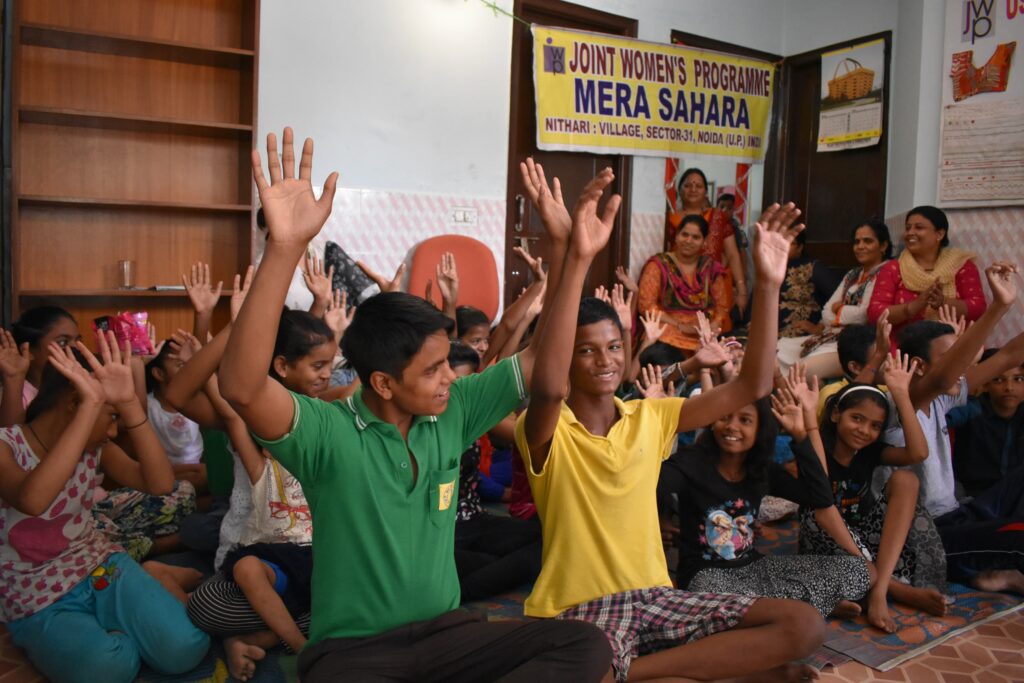
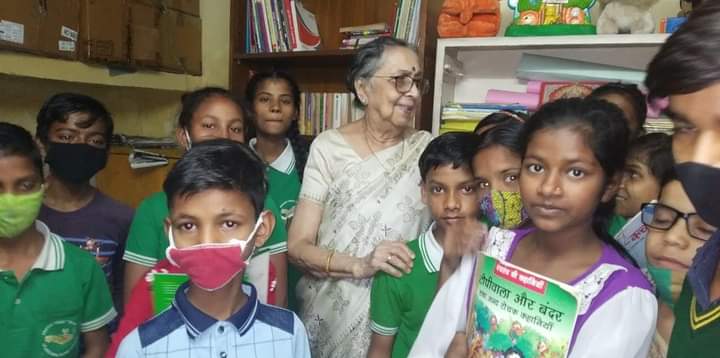
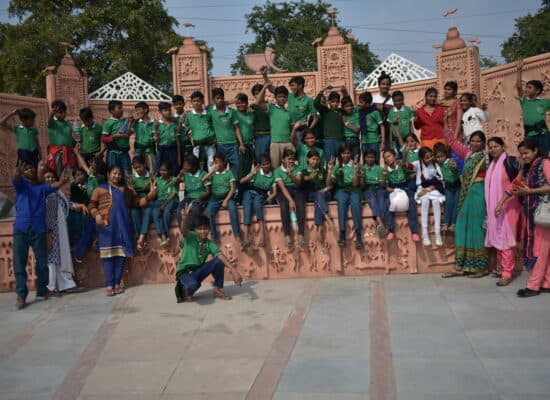
SKILL DEVELOPMENT
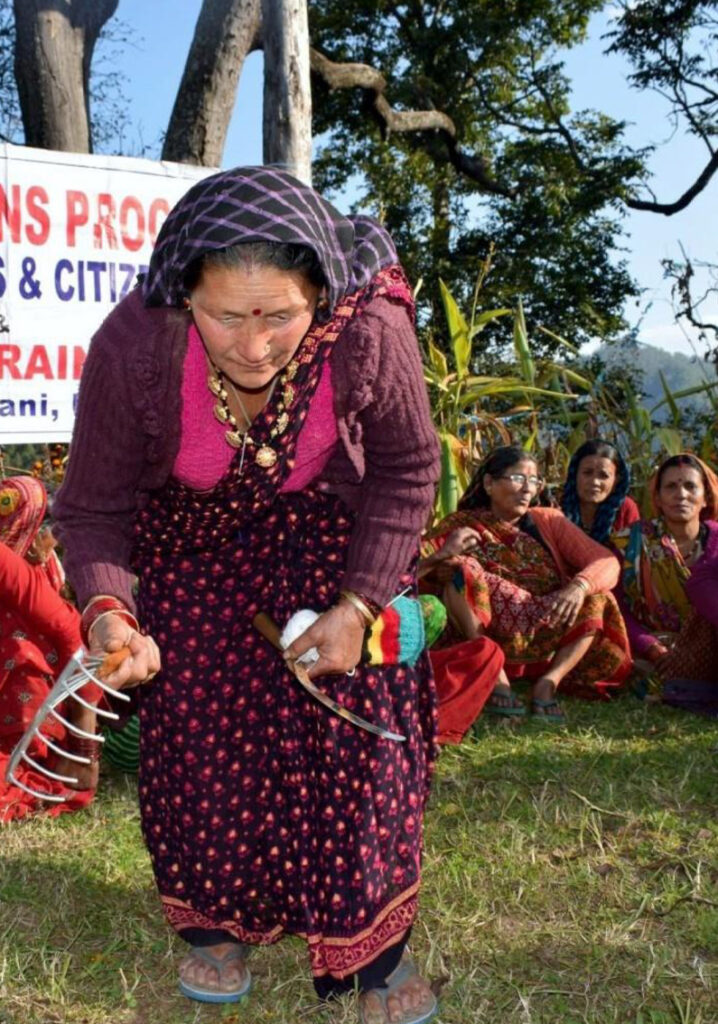
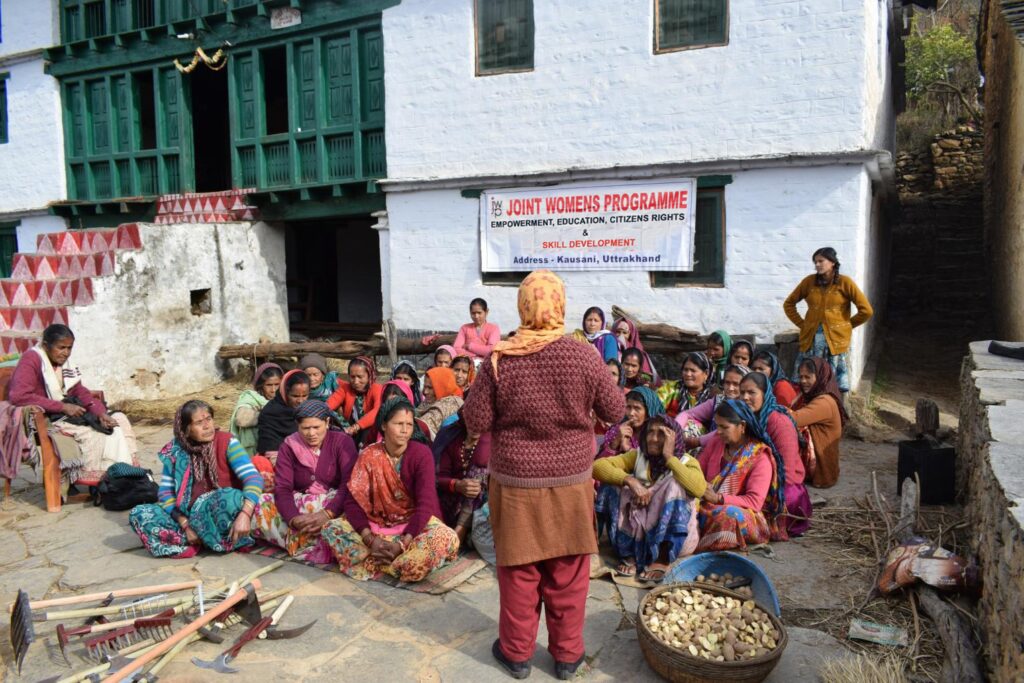
Skills are an important part of any person’s economic well-being and dignity.A major area of focus for JWP has been on skill development which help women to become self-sufficient and economically independent. Skill training at Mera Sahara Canters not only empowers them financially but sustained efforts to make them literate and educate their children have also proven to be useful and rewarding.
Systematic skill training programmes are conducted in:
- Tailoring and embroidery
- Computer use
- Nutritious cooking
- Beautician course
- Training of women in making of environmentally friendly agricultural tools and machines
- New methods of good quality fodder production
- Use of solar powered machines for agriculture
- Smokeless stove making for heating and cooking
- Waste Management – segregation and composting
In Uttarakhand, JWP’s informal knowledge building programme focuses on poor women farmers and single mothers.
This programme aims to:
- Empower women and young adults with knowledge for sustainable livelihood generation
- Prevent migration towards urban areas
- Preserve indigenous forests and land biodiversity
- Reduce laborious field work for women by remodelling tools and machines to be conducive to women farmers. This allows them to use less time and energy and yet be economically productive
ENVIRONMENT
It is becoming more and more important to generate awareness about climate change, and environmental degradation. JWP strives to inform the community on how environmental pollution and lack of cleanliness affects the health of the community.
JWP conducts awareness programmes, workshops, and campaigns at its four Centres on:
- Waste segregation at source (home) for proper garbage disposal
- Home composting
- Single use plastic and its destructive effects on air, water, and soil contamination
- Saving water
- Planting trees
- Rejuvenation of water table
- Preventing soil erosion
JWP is now pursuing the distribution of compostable and long-lasting sanitary hygiene supplies for young girls and women in 2 of our projects.
So far, JWP is one of the very few organizations involved in such activities and the Noida administration has appreciated JWP’s contribution in spreading awareness on Reduce, Reuse, and recycle.
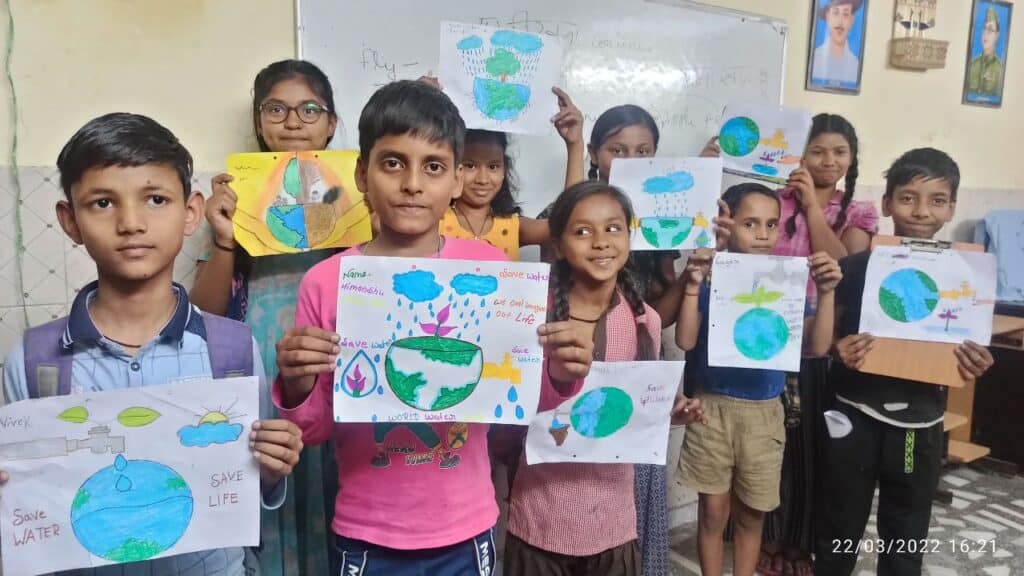
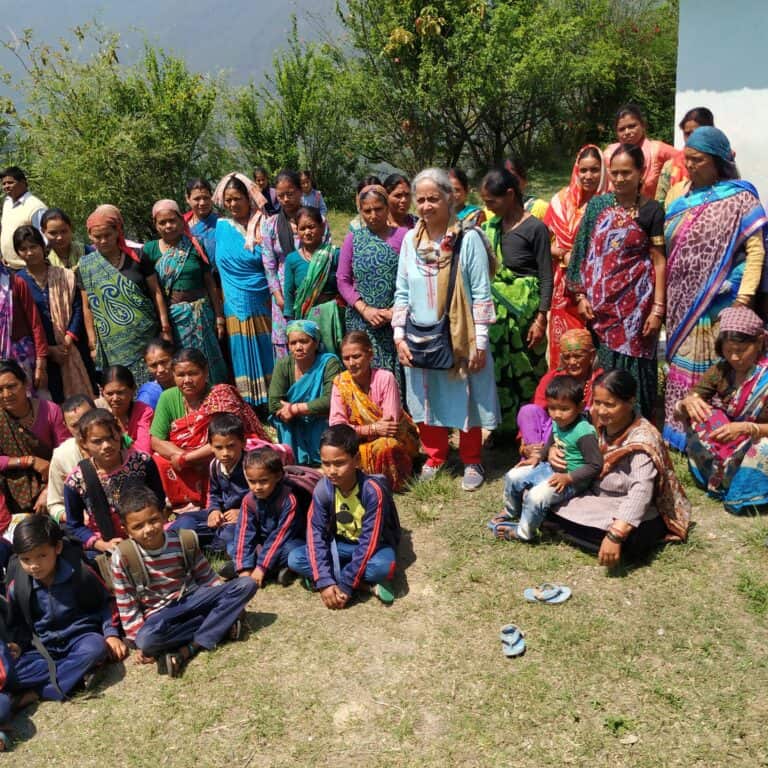
GENDER AWARENESS,
COMMUNITY PARTICIPATION
& HEALTH

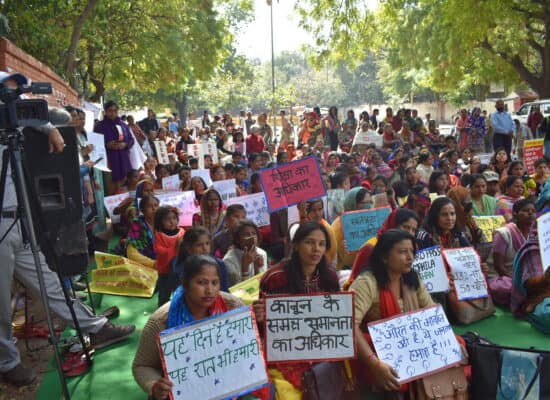
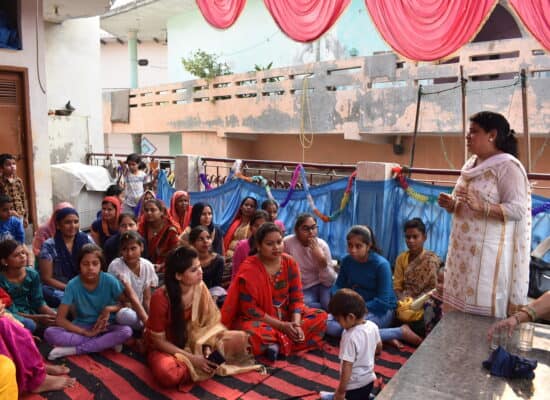
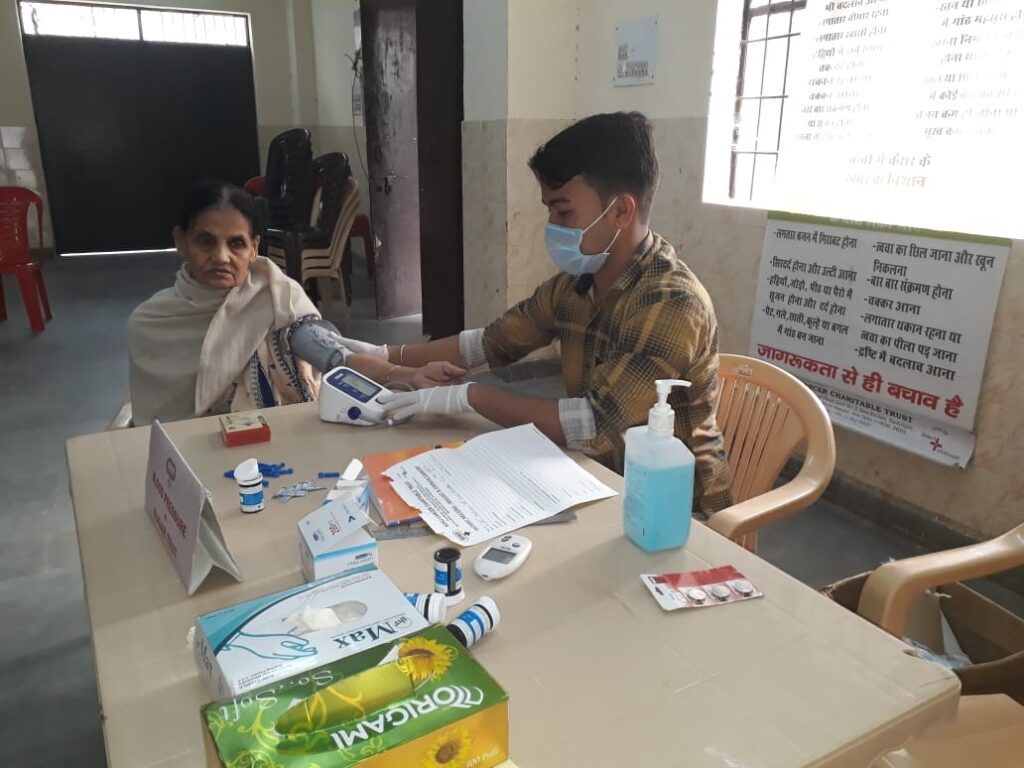
JWP believes that only through community acceptance and participation can there be any social interventions. Therefore, regular bi-monthly meetings are conducted for community women and men in different areas to encourage them to learn about their constitutional rights, duties, existing policies, and laws for protection; and how to use them.
Women are also given awareness on basic legal procedures on violence against women and children, and how to file a First Information Report (FIR) when faced with assault, sexual harassment of women in the workplace etc. Also filling up voting forms, bank opening forms, and applying for ration cards etc.
JWP organises regular community sessions with experts on various issues, such as:
- Child Marriage and Domestic Violence
- Rights and responsibilities of women workers from the un-organised sector
- Equality- Our rights under the Constitution of India
- Trafficking of women and children
- The Role of Police as partners in preventing violence
- Environment Protection
- Menstrual Health and Hygiene for women
Although not many men attend these community meetings yet, but JWP continues its efforts to involve them in every way possible. It believes that equal partnerships between men and women can be the only effective tool to foster development.
HEALTH
JWP engages in promoting optimal health care and nutrition practices for women and children. Through effective counselling, it spreads awareness and understanding about general and mental health, hygiene and sanitation, meeting micronutrient requirements and preventing and treating severe acute malnutrition. The emphasis is on promoting a concept of total health and nutrition, which includes not only physical health but also emotional and environmental protection. Equipping women with good health practices, ensures better, healthy lives for themselves and their children.
JWP has organised several health camps with the help of local doctors and the Lioness Club, who handle preventive and curative aspects of health.
Major areas of work for JWP have been:
- Regular discussions with women’s groups and community leaders on general medical problems and diseases
- Discussing issues related to women’s reproductive health and STDs, HIV/AIDS, etc.
- Community health-awareness about malnutrition, immunization and emphasis on health problems related to early marriage and sexual abuse.
- Community health-awareness about maternal health and post and prenatal pregnancy
- Training of health workers, who organise people to recognise problems of ill-health
- Interaction with local administration and political leaders to ensure cleanliness and hygiene is maintained in surrounding areas
- Better and safer housing conditions for the people
- Access to clean drinking water
Occasionally students and women take out rallies through the areas with placards to emphasise the need for clear environment and personal cleanliness. There were four such rallies last year emphasising Swachh Bharat.
Recognition
An invitation to
RASHTRAPATI
BHAVAN
JWP was invited to the Rashtrapati Bhavan in recognition and appreciation of JWP’s contribution to the community and grassroots level work. We were very happy to receive a Certificate of Appreciation from the Hon’ble President of India, Shri Ram Nath Kovind. What made the event all the more special was that we were one of the few organisations invited from all over India. We are grateful for the honour !
Some of Our Recognised Work
JWP was the organization and driving force behind the passage of Devadasi Prohibition of Dedication Act, 1984 against religious sanction for Child Prostitution through its study on the Devadasi Problem- Prostitution with Religious Sanction and Advocacy with the Govt. of Karnataka.
It was successful in convincing the Indian Government to make amendments to Section 10 of the Indian Divorce Act, 1869 in 2001, which made divorce possible for both Christian men and women on equal grounds.
JWP has been an active member of the nationwide campaign for the Protection of Women from Domestic Violence Act 2005, and against the Prohibition of Child Marriage Bill, 2006.
Its 10 workshops on Child Marriage in different regions of India sponsored by UNICEF prepared the data for the passage of the new Act, The Prohibition of Child Marriage Act, 2006.
The study conducted on trafficking of women and children in India and its training manual for community organizers and govt., functionaries for the prevention of child trafficking led to the govt. emphasizing the need for schemes for prevention, rescue and rehabilitation-UJWALA.
- Dowry Prohibition Act
- Laws on Rape
- Women’s Reservation Bill
- Sexual Harassment in the workplace
- Land Rights for women
- Prohibition of Child Labour
- PCPNDT Act and,
- Domestic Violence Act
Increasingly the legal and social economic rights of women as well as their struggle for Justice are attracting the attention of Joint Women’s Programme.
At present, Joint Women’s Programme is part of The India Alliance for Child Rights involved in the Country Review of the Convention on the Rights of the Child, Govt’s. position on Missing Children, Child Sexual Abuse and the need for changes in the existing Shelter homes for women & children. Networking with local police desks, women’s cells, National Commission for Women & the National Commission for the Protection of Child Rights.
